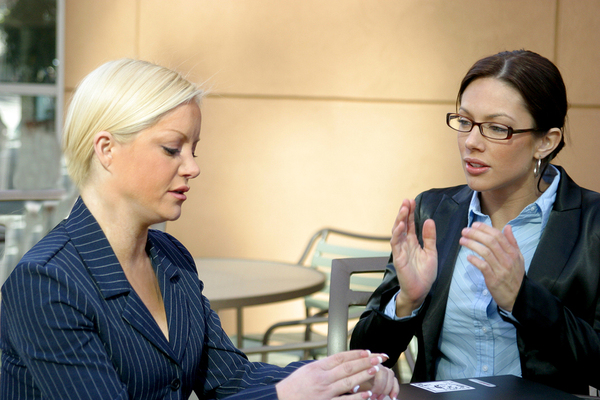THE WORLD’S #1 EXECUTIVE COACHING AND BUSINESS COACHING BLOG SINCE 2017.
Anticipating the Views of Others: A Fundamental Part of Self-Awareness
Published On: July 15, 2019 | Last updated on: July 2, 2023 | Author: John Mattone | Category: Blog, Intelligent Leadership
Self-awareness may be the most important skill of great leaders.

Self-awareness doesn’t require blocking out reality, however.
Self-awareness begins with self-knowledge and then takes that knowledge to monitor and regulate our thoughts, beliefs, and emotions. When a person is self-aware, they are able to evaluate themselves with a certain degree of objectivity. Highly developed self-awareness underlies emotional intelligence, self-regulation, and self-confidence.
It’s no mystery why so many leadership coaching programs emphasize the development of self-awareness because leadership effectiveness depends so heavily upon it. But while the ability to know oneself and use self-knowledge to regulate emotions and actions is the basis of self-awareness, there is another component to self-awareness that we sometimes overlook: the ability to anticipate the views of others.
Strategic Anticipation Often Underrated, Overlooked
World-class athletes and chess players have an uncanny ability to anticipate not only the actions of their opponents but also the outcomes of those actions. Likewise, great leaders are able to anticipate the actions and outcomes of others’ actions, but only if their self-awareness includes appreciation for other people’s viewpoints. Developing strategic anticipation helps leaders accomplish more, better:
- They can handle multiple issues better while remaining ready for change
- They are less likely to be blindsided by new challenges
- They can view crises as steppingstones to levels of greater performance
- They can discover new pathways to their goals
A Good Starting Place for Developing Better Strategic Anticipation
It’s easy enough to advise leaders to “solicit feedback,” but how can they do that in ways that broaden their self-awareness? Scott Taylor, associate professor of organizational behavior at Babson College suggests deliberately broadening the narrative around ourselves with a multi-step process. Here’s the technique he uses:
- Ask someone to describe themselves as a leader
- Ask their direct reports to describe their leader
- Go back and ask the leader what they think others said about them
- Discuss what the direct reports actually said about them and see where the gaps are
How does your view of yourself as a leader agree and disagree with others’ perceptions of you as a leader?
This technique expands self-awareness to include others’ perceptions. It’s not an easy exercise, but the results can be transformative. Once you understand any discrepancies between how you perceive yourself and how others view you, you can better anticipate others’ viewpoints and lead more effectively.
Using Skilled Anticipation in Communication
One of the many places that leaders can put skilled anticipation to work is in their day-to-day communications. Some tips for doing this effectively include:
- Attempting to give more positive than negative feedback
- Focusing on others’ facial expressions
- Emphasizing working together to overcome challenges
- Maintaining eye contact (without engaging in a stare-down)
- Being authentic in conversation
- Remembering compassion in communication
- Thoroughly understanding the context of the communication
- Not being afraid to be wrong
As a coach, if I had to choose a single skill to work on with clients, it would probably be self-awareness. Leadership effectiveness requires the ability to see the world and one’s place in it honestly and with authenticity, and that’s a big part of self-awareness. But believe it or not, self-awareness isn’t just about the person practicing it: it’s about that person and those they interact with. Learning strategic anticipation of others’ viewpoints opens a person up to new ideas, keeps them grounded in reality, and helps them communicate better.



